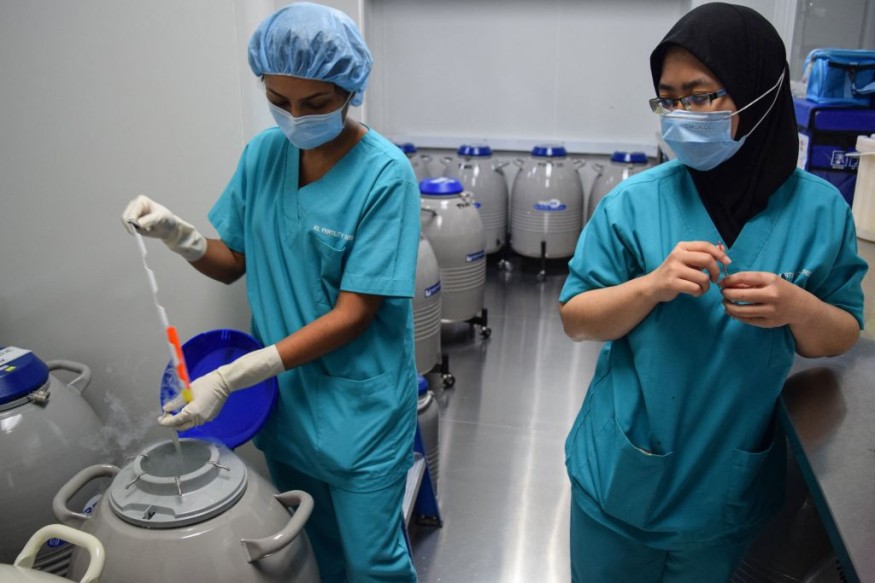Egg cells are the key to the female reproductive system to reproduce a new life. Anyone born with a uterus has an estimated 1-2 million egg cells at birth that gradually decline as women grow older, which means the number of chances of getting pregnant also drops dramatically.
Although having enough eggs is important to reproduce, experts say that it is not the only factor in getting pregnant. But it is still something to consider when planning to have children later in life.

How Do Women Lose Their Eggs?
Dr. Raegan McDonald-Mosley, an obstetrician-gynecologist and chief executive officer of Power to Decide, said that anyone with a uterus is born with all the eggs they will ever have and will never produce more.
According to Business Insider, women have 1-2 million egg cells at birth and then decline to about 300,000 to 500,000 by reaching puberty. During the 20s, they will only have 150,000 to 300,000 egg cells left and will drop more by the time they reach their early 30s, having only about 100,000 to 150,000 egg cells.
As they reach their late 30s, they will only be left with 27,000 egg cells. However, the rate of egg loss further increases and will only leave them about 5,000 to 10,000 eggs by the early 40s. After that, the menopausal period begins between ages 45-55, and they will have only 1,000 eggs or zero egg cells left.
Women tend to lose their eggs in two ways: either through ovulation or by breaking down. During ovulation, a woman very releases a mature egg every month and will leave the body as part of their period if it is unfertilized.
However, 99% of egg loss is due to a process called follicular atresia, or the removal of damaged or unused cells to retain the healthy cells in the body.
Factors Affecting Female Fertility
The number of egg cells is a big factor in female fertility. But experts say that other factors determine the chances of getting pregnant, such as egg quality that declines with age. More so, the partner's sperm also plays a significant role in the chances of getting pregnant.
But in terms of female fertility, FertilityNetworkUK pointed out that lifestyle and medical conditions also affect chances of getting pregnant. Under lifestyle, this includes smoking habits, alcohol consumption, caffeine, and over-the-counter and recreational drugs. While medical conditions, like polycystic ovary syndrome and endometriosis, could decrease the chances of getting pregnant.
Is Egg Freezing A Good Option?
Since egg loss is inevitable for women, advances in technology have offered them options to preserve their eggs through egg freezing or oocyte cryopreservation. According to UCLA Health, this process involves extracting, freezing, and storing egg cells to preserve their reproductive potential.
The first human birth from egg freezing was reported in 1986, which paved the way for the improved overall success of the procedure. Today, it is no longer considered an experimental procedure as the techniques used lead to enhanced gamete survival and potential fertilization.
But should you consider egg freezing? Usually, this process is considered when the woman has cancer and requires chemotherapy or when surgery is needed but may cause damage to ovaries, medical conditions, genetic mutations, and fertility preservation for social or personal reasons.
RELATED ARTICLE: Male Fertility: Increased Chemical Exposure, Lifestyle Changes Cause Sperm Quality in the US to Decline
Check out more news and information on Fertility in Science Times.
© 2026 ScienceTimes.com All rights reserved. Do not reproduce without permission. The window to the world of Science Times.











